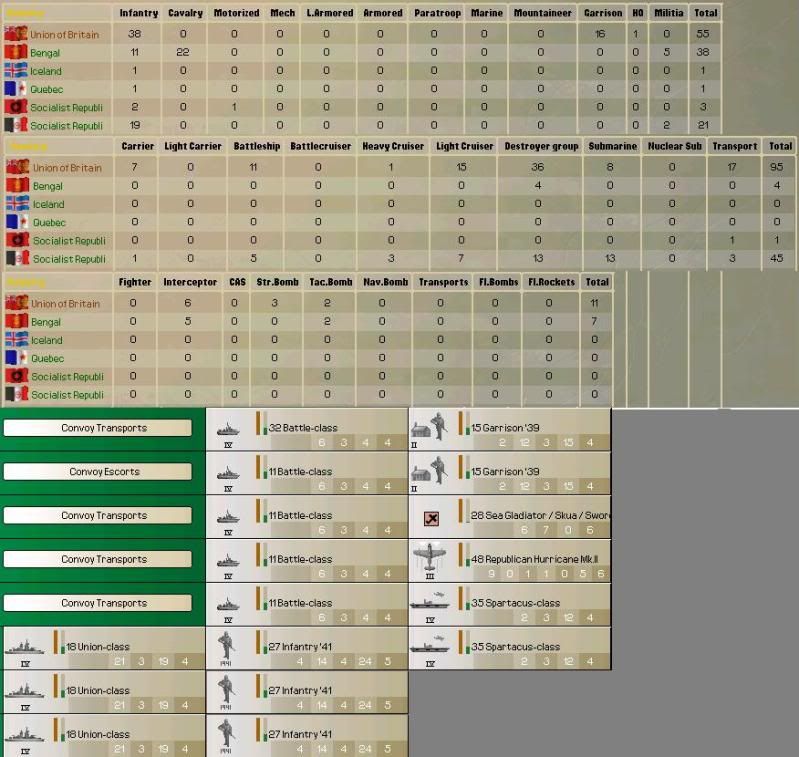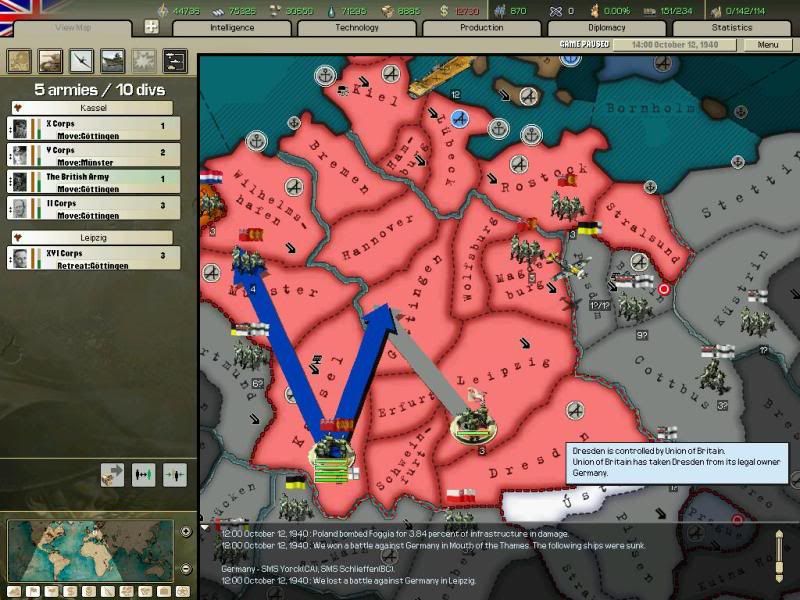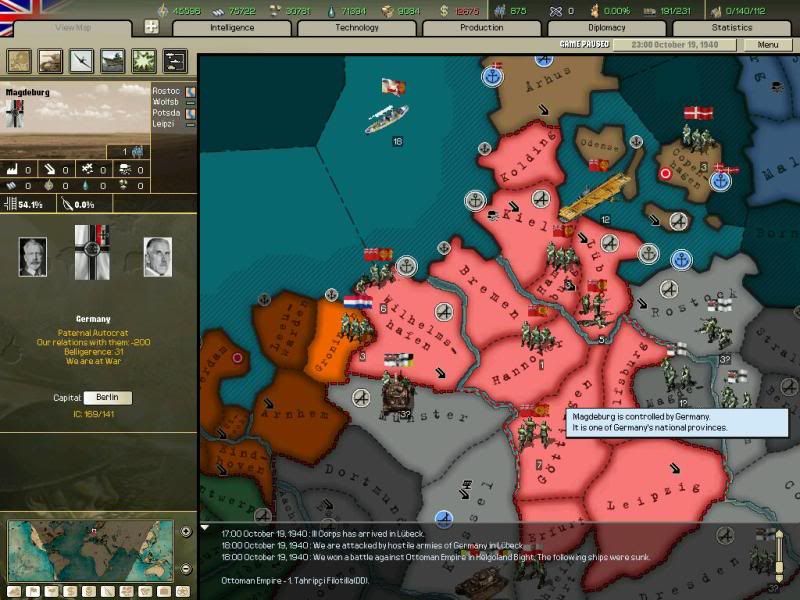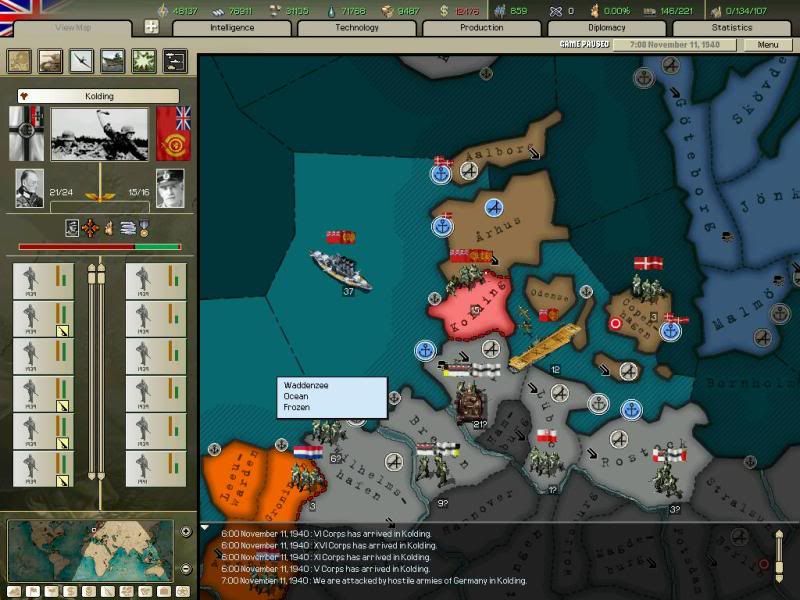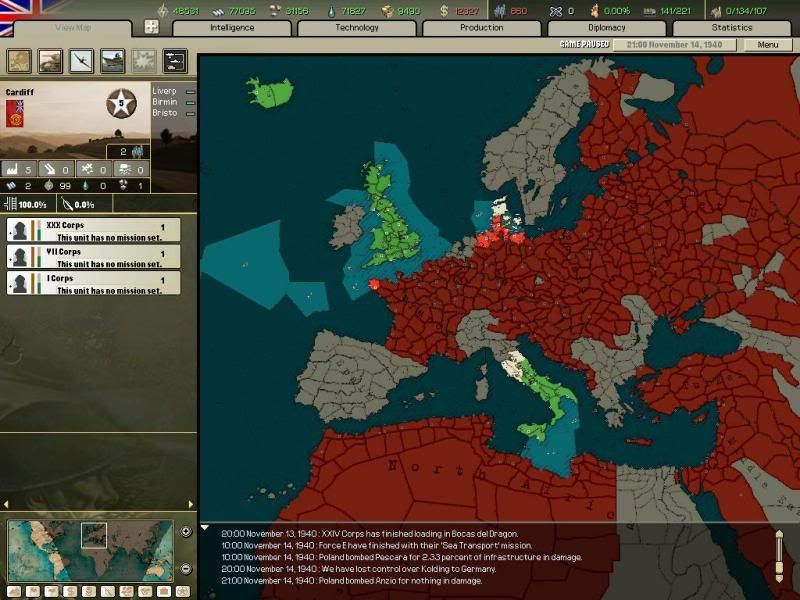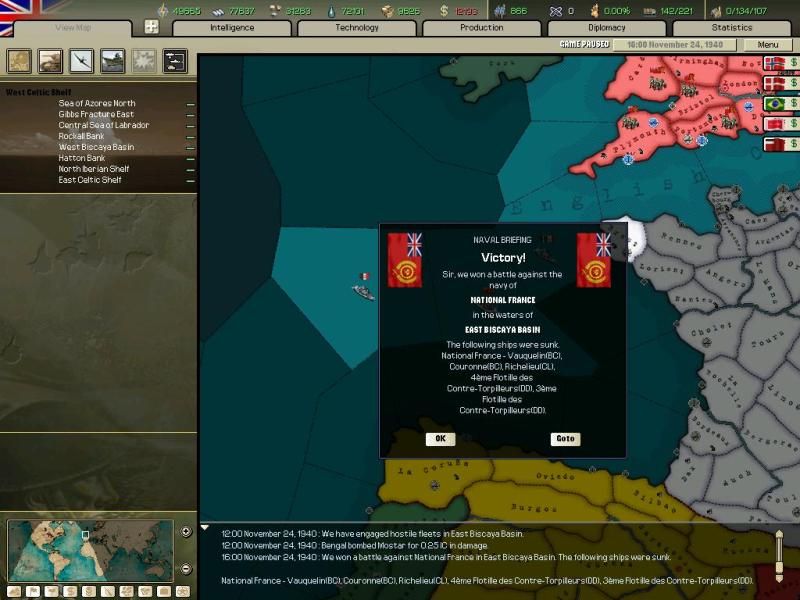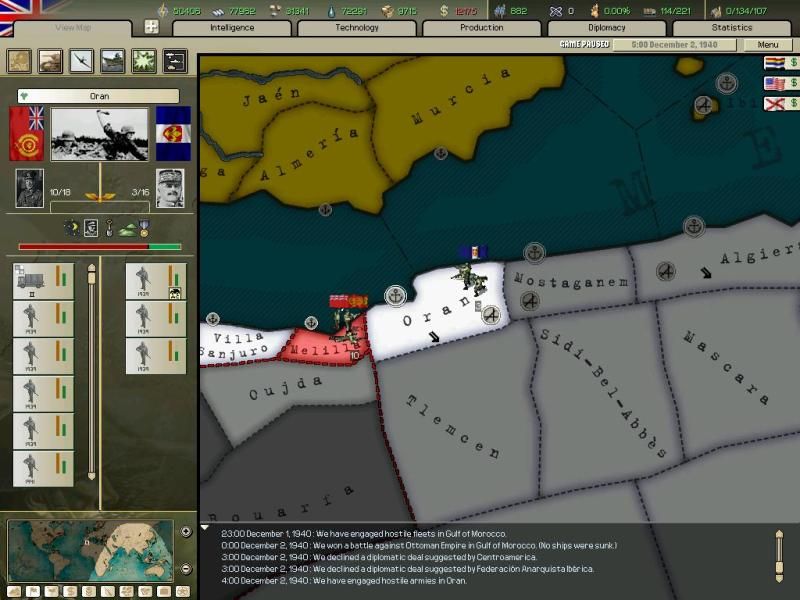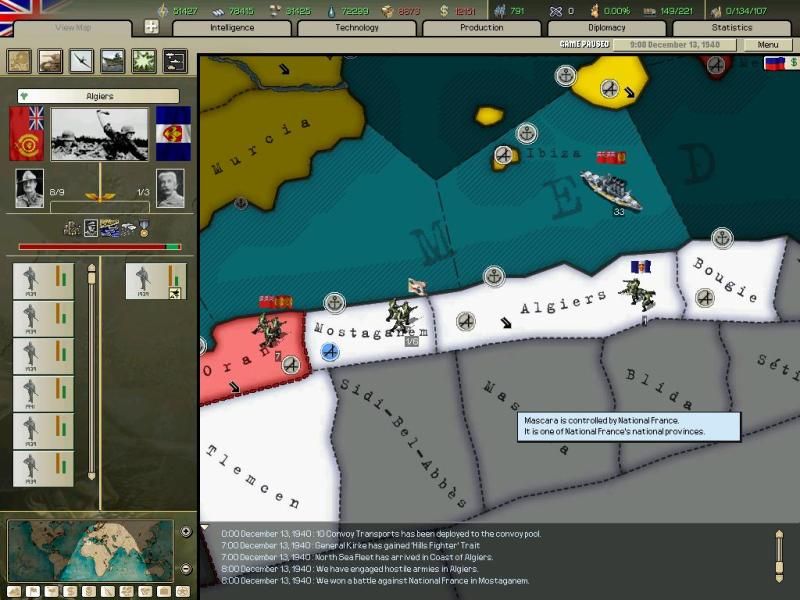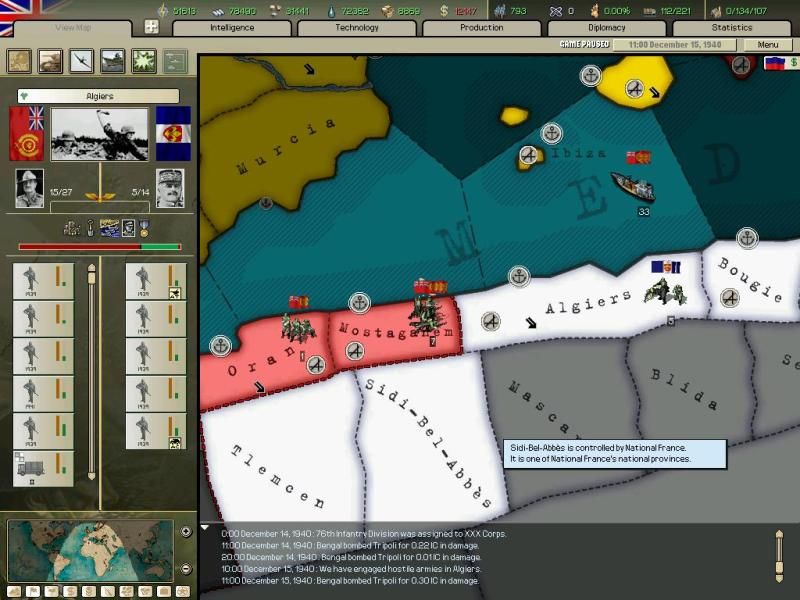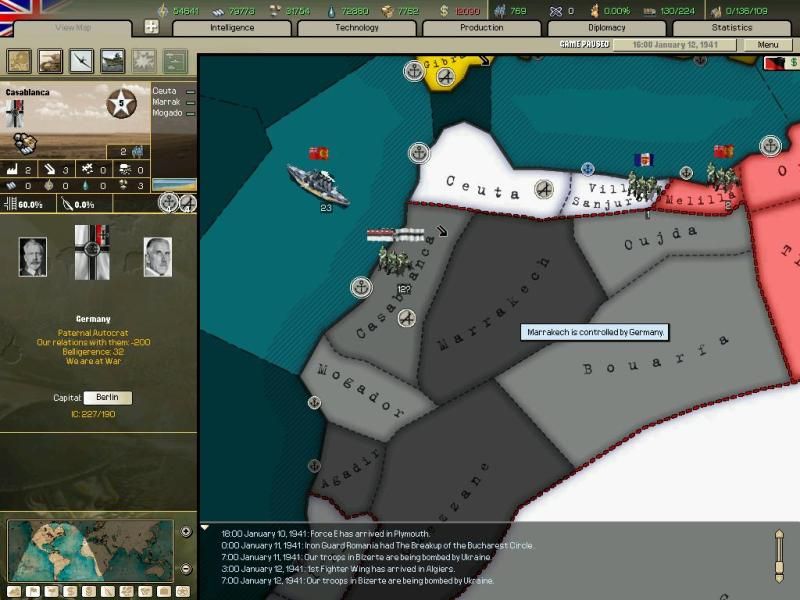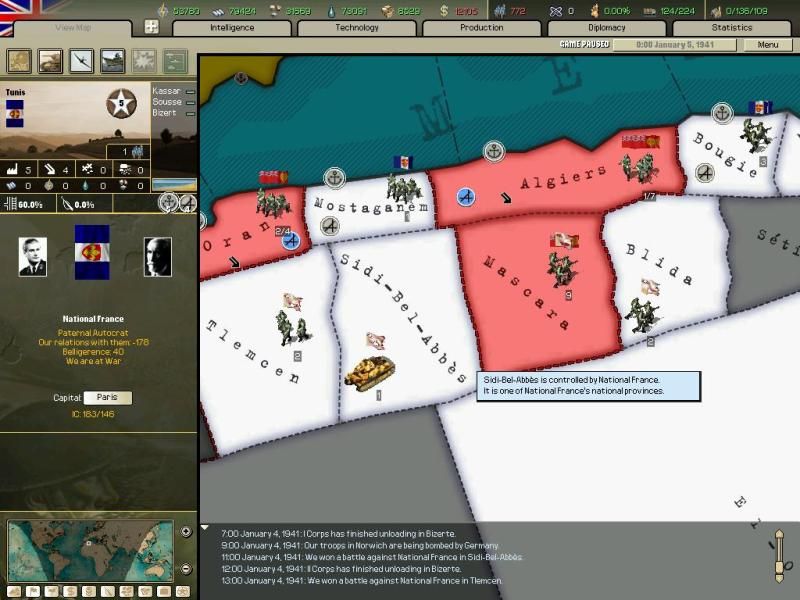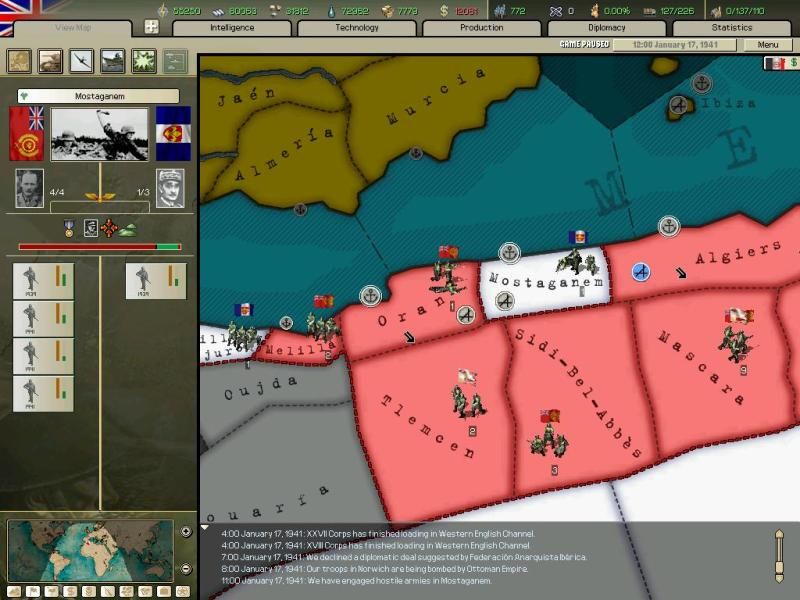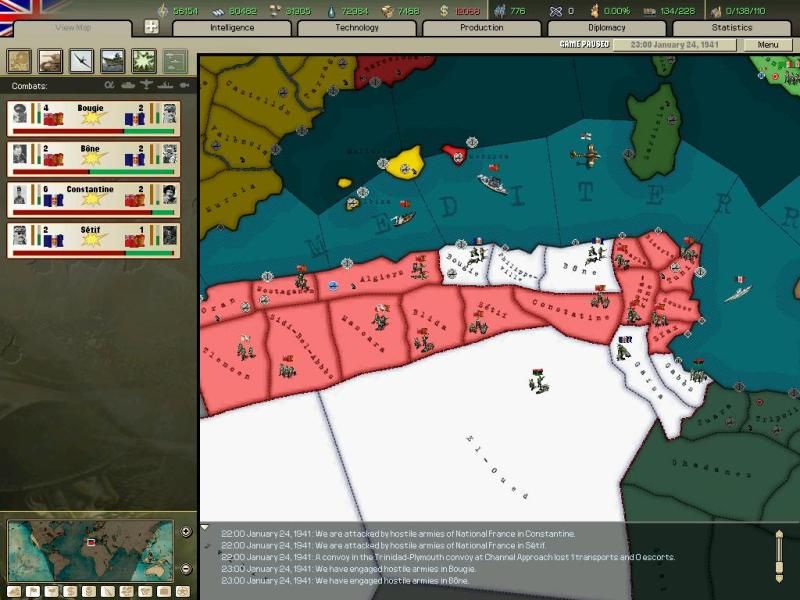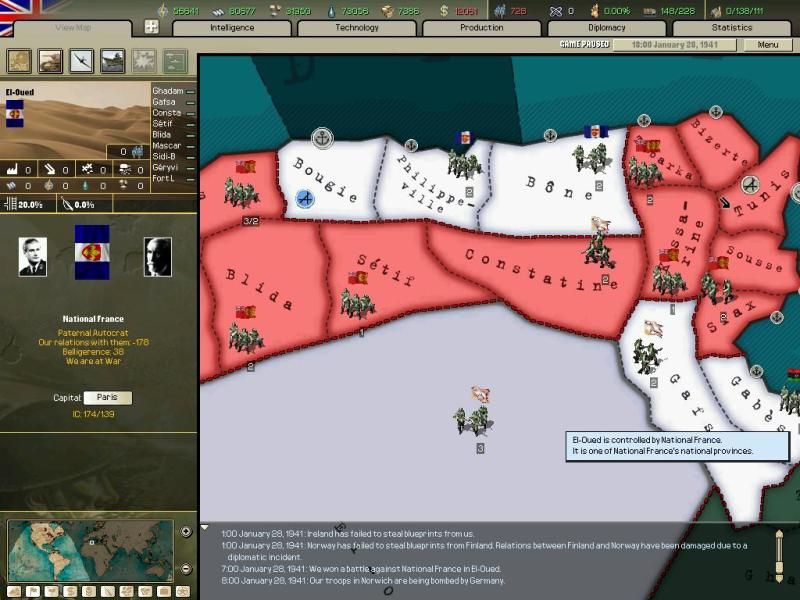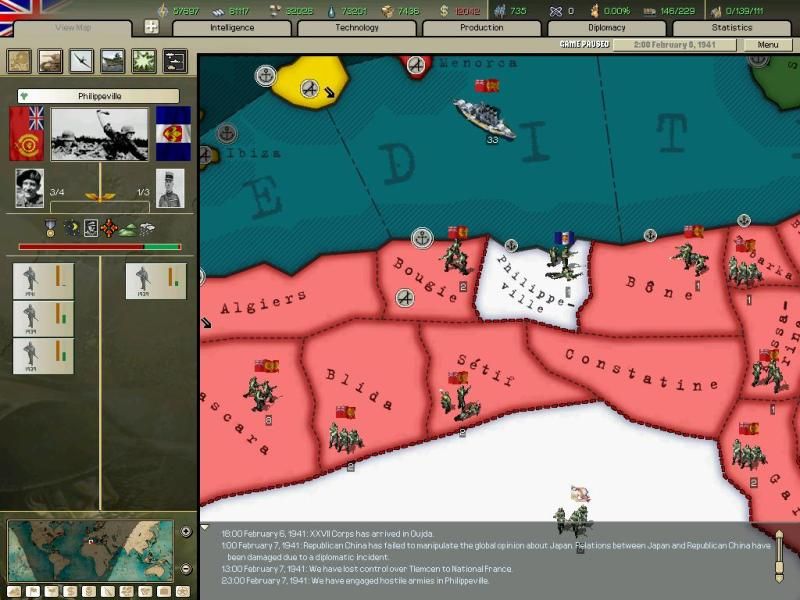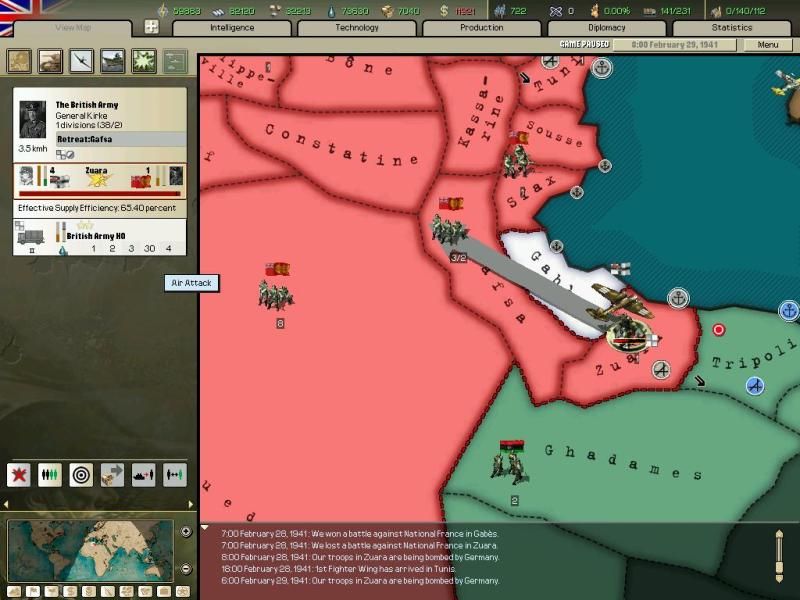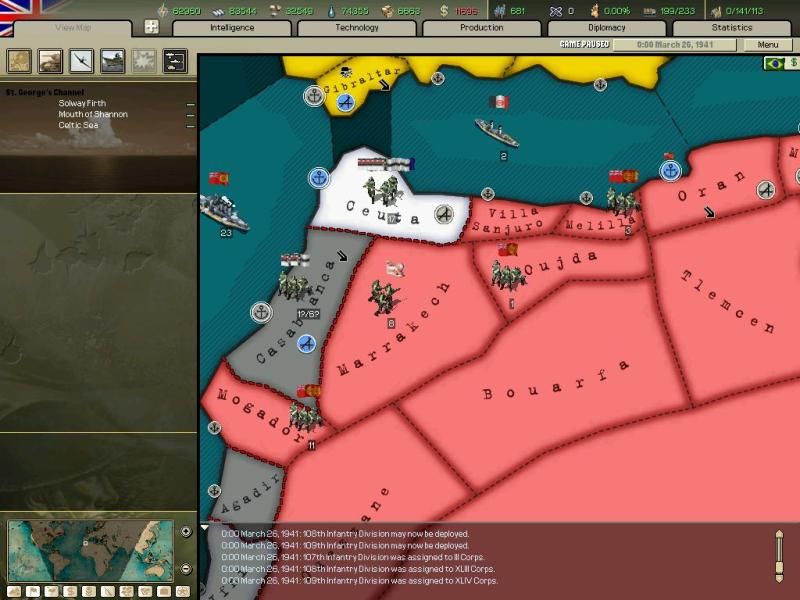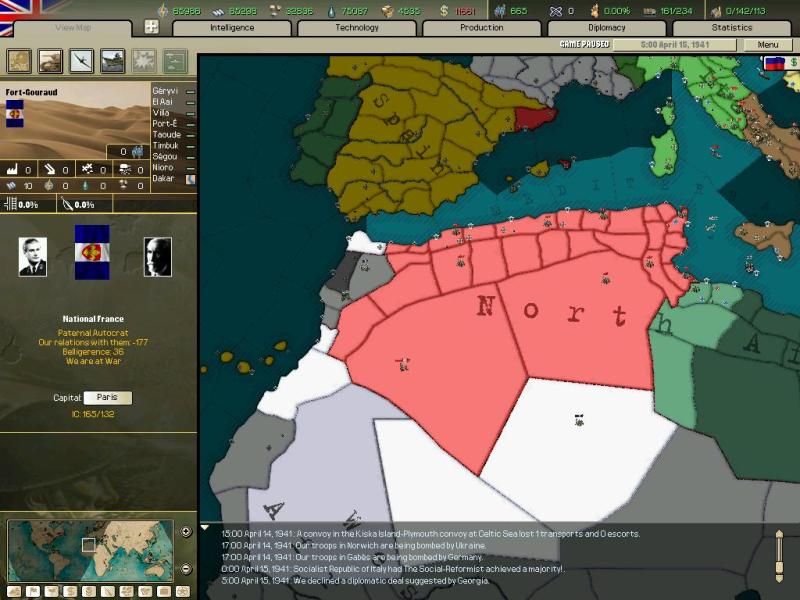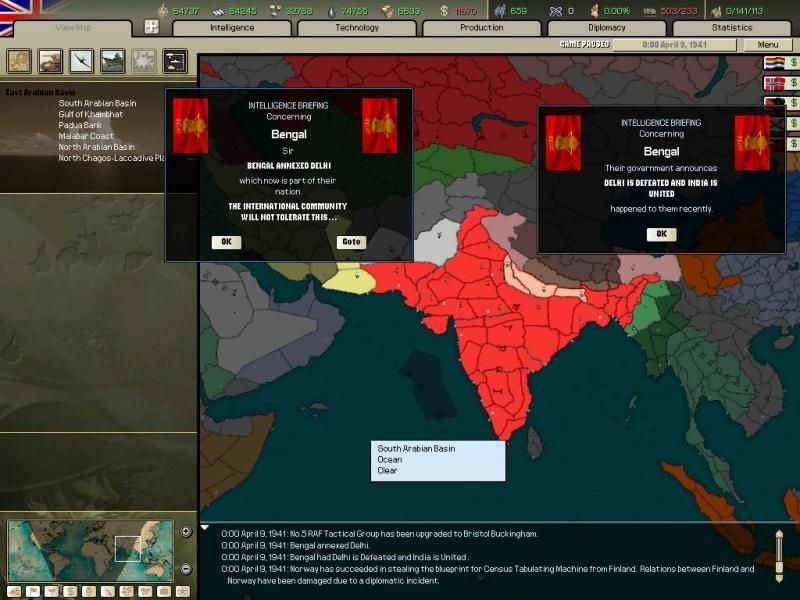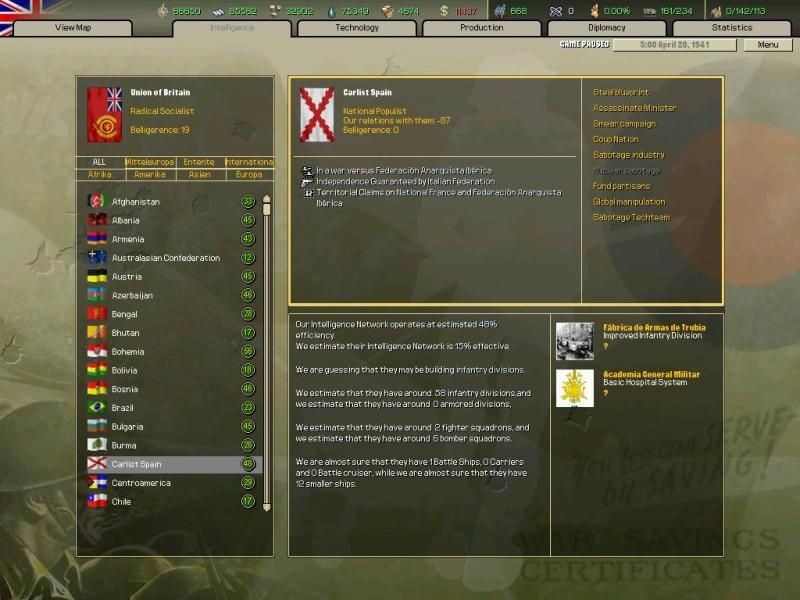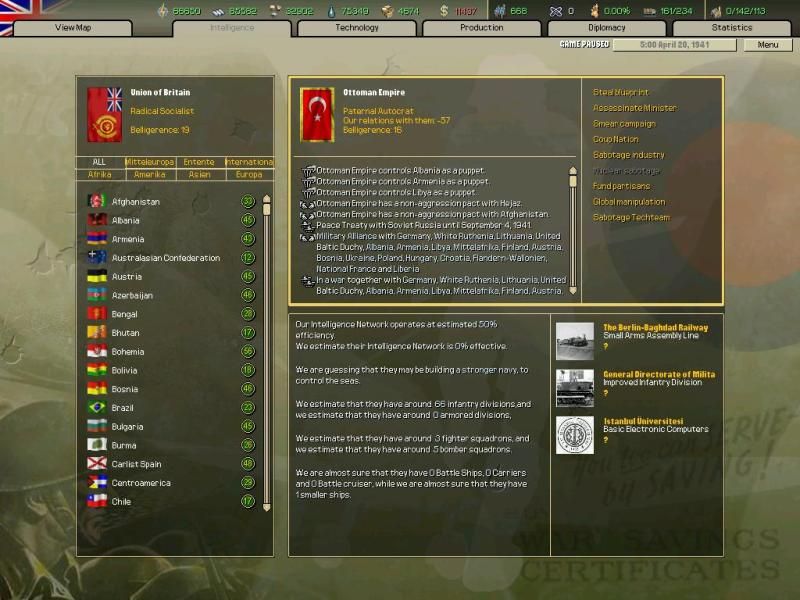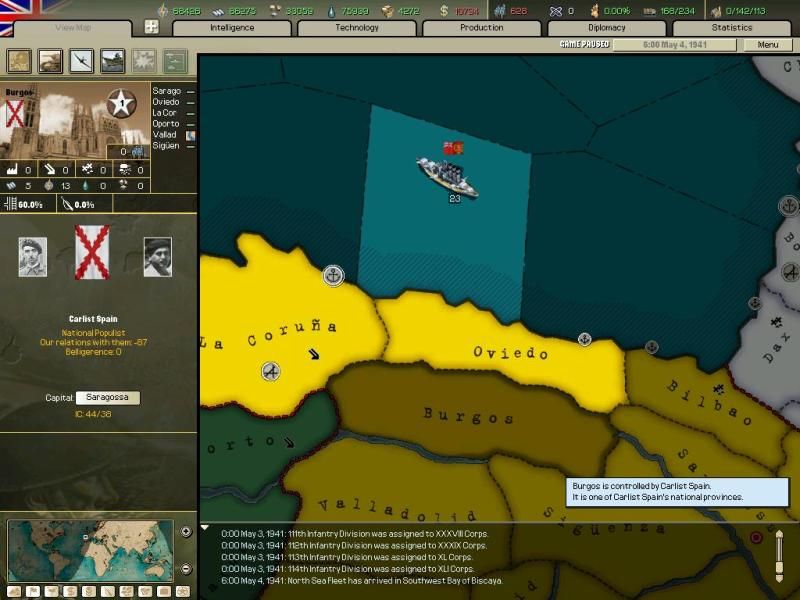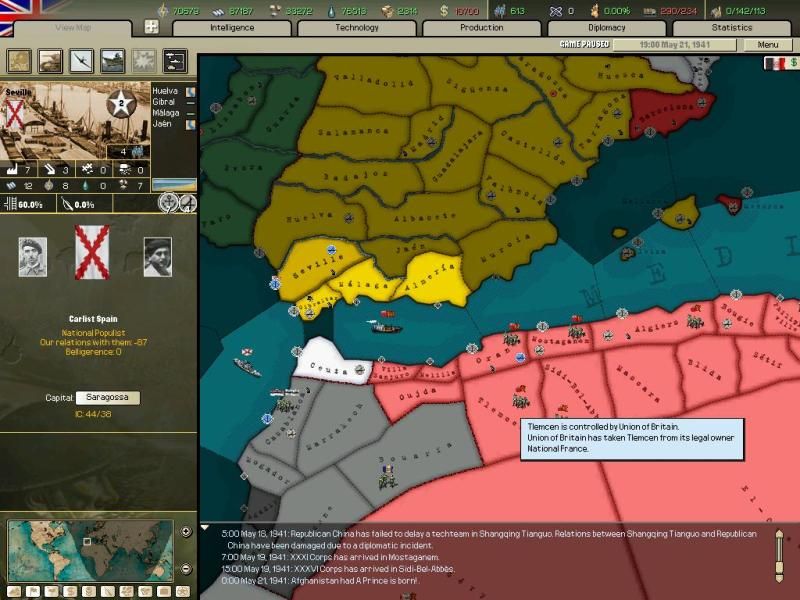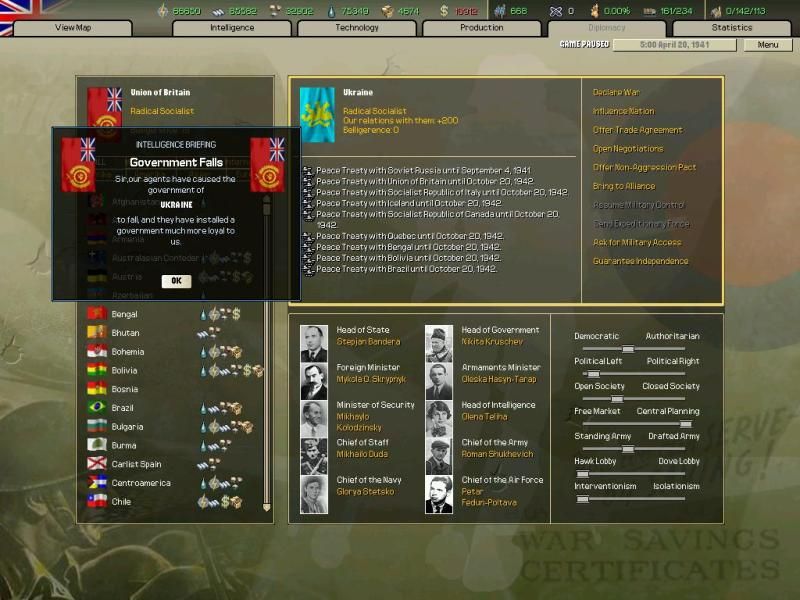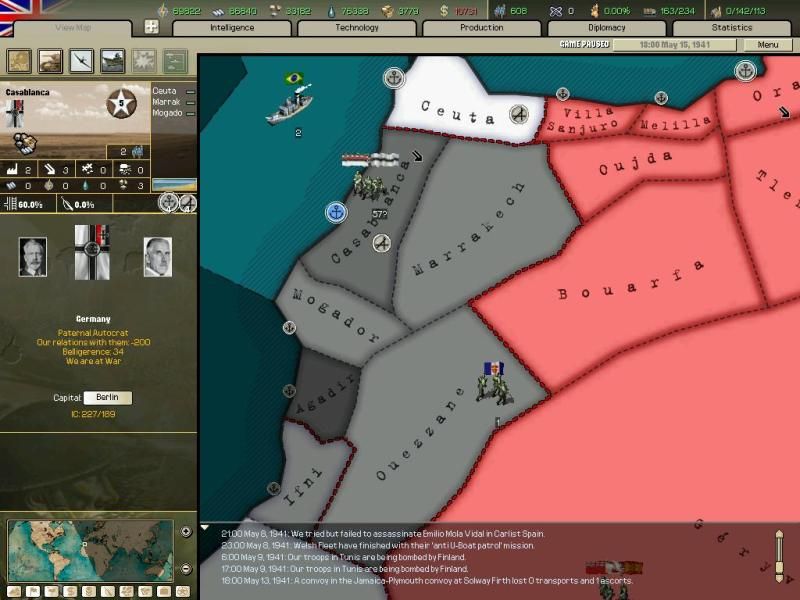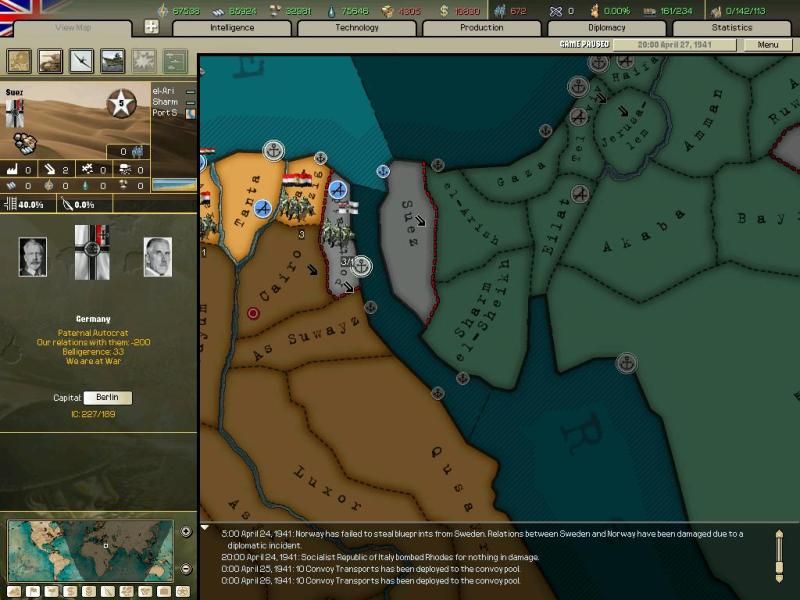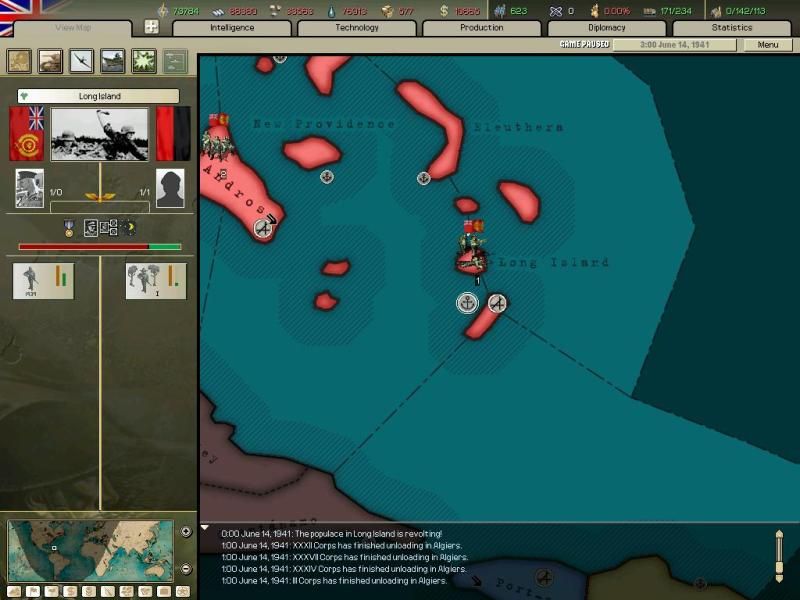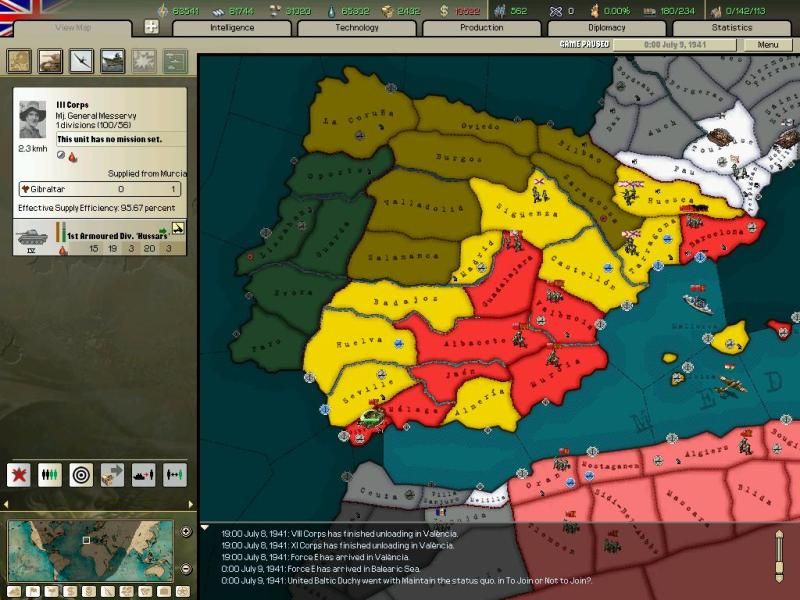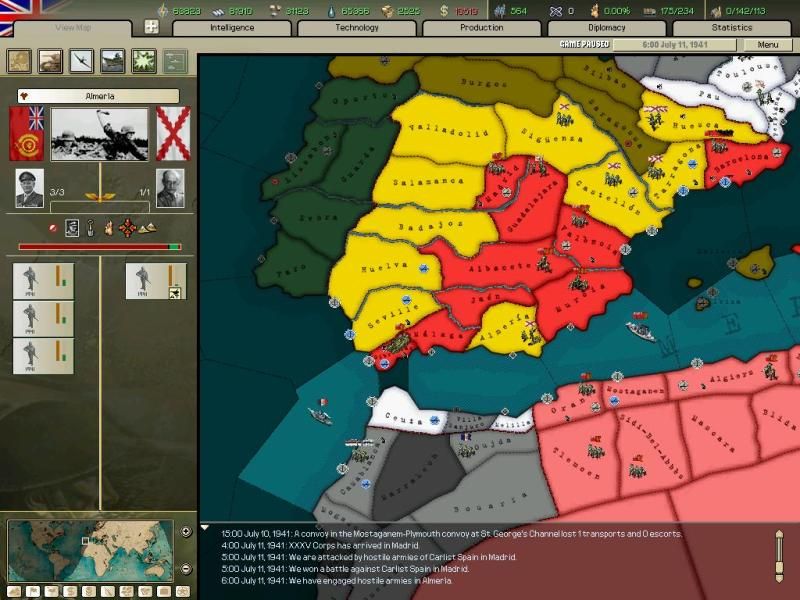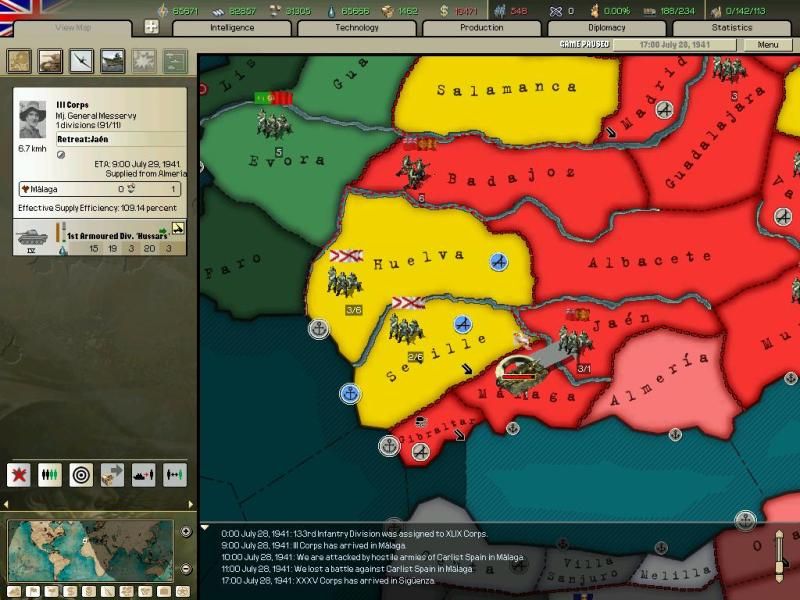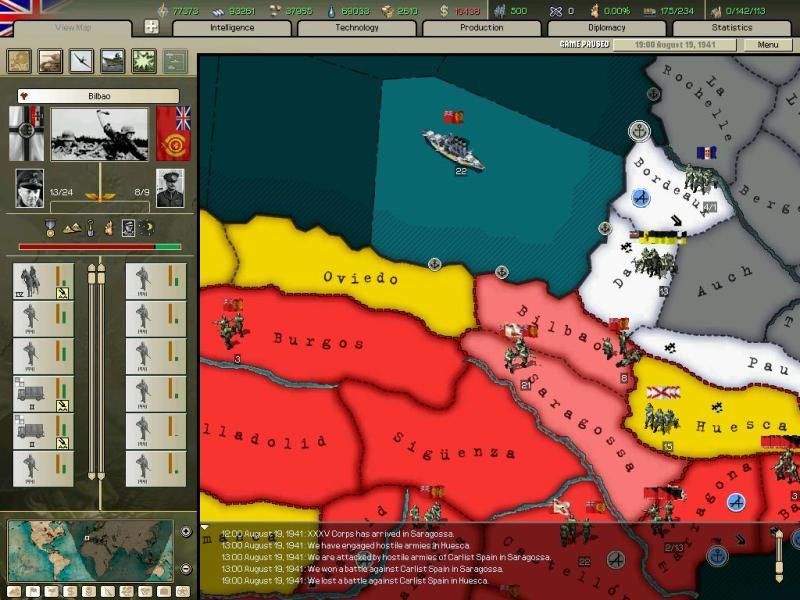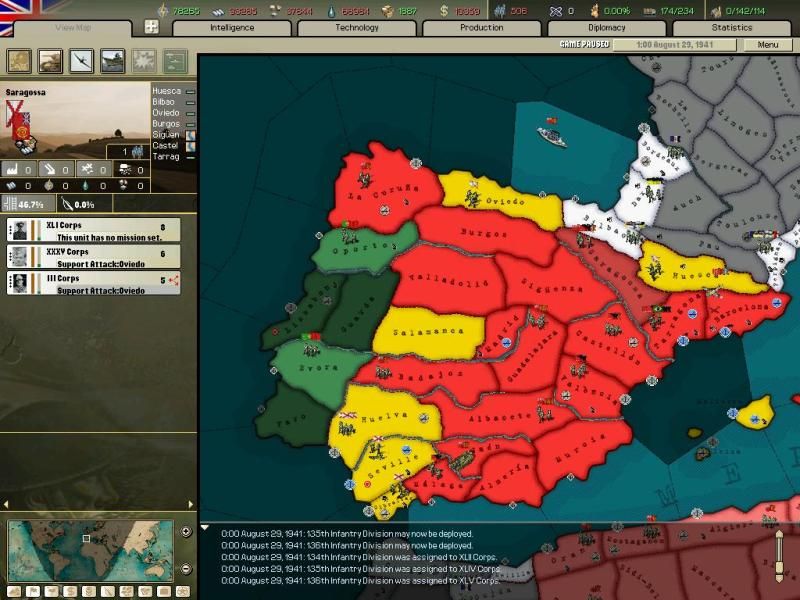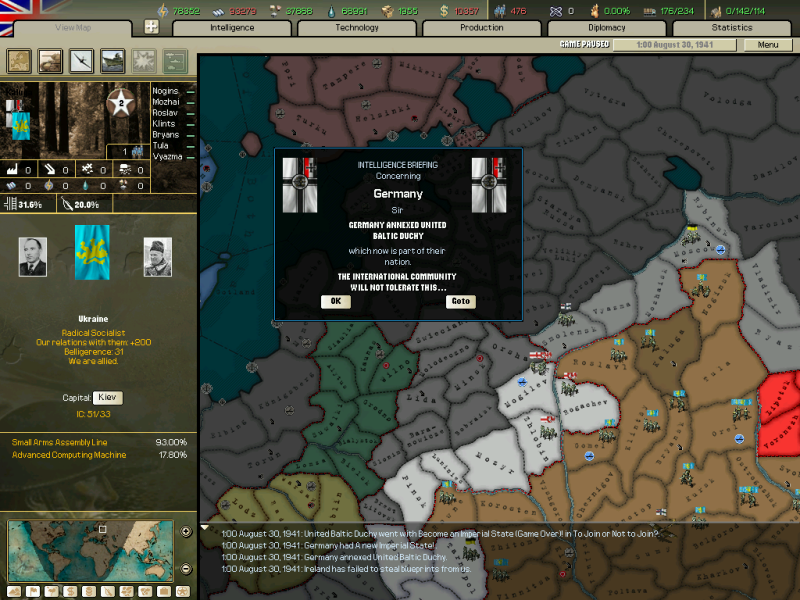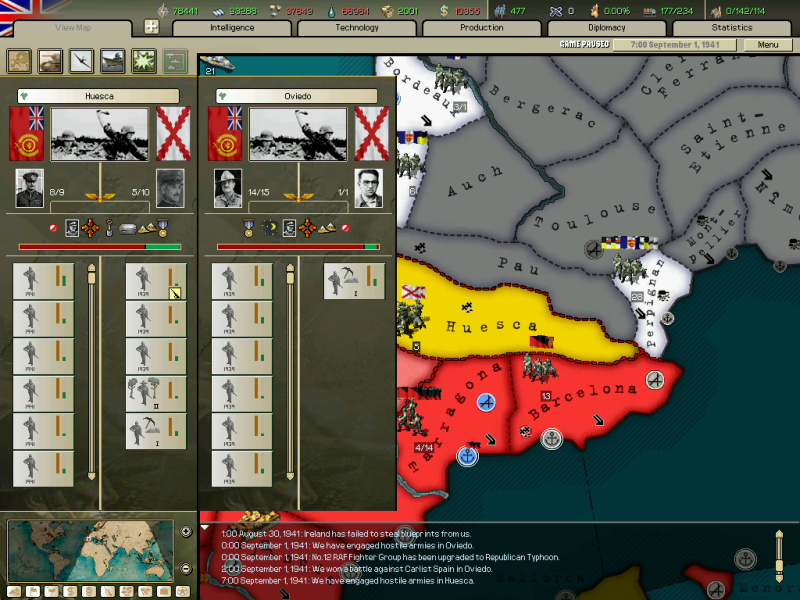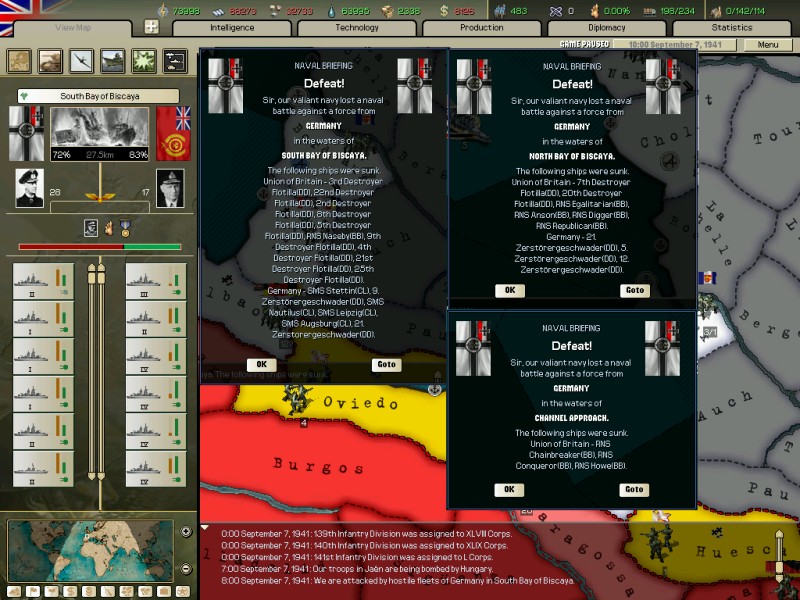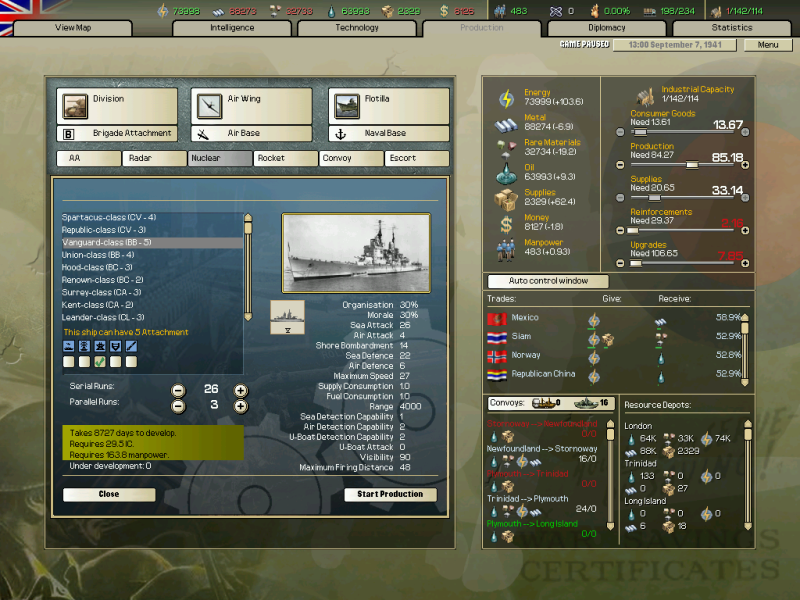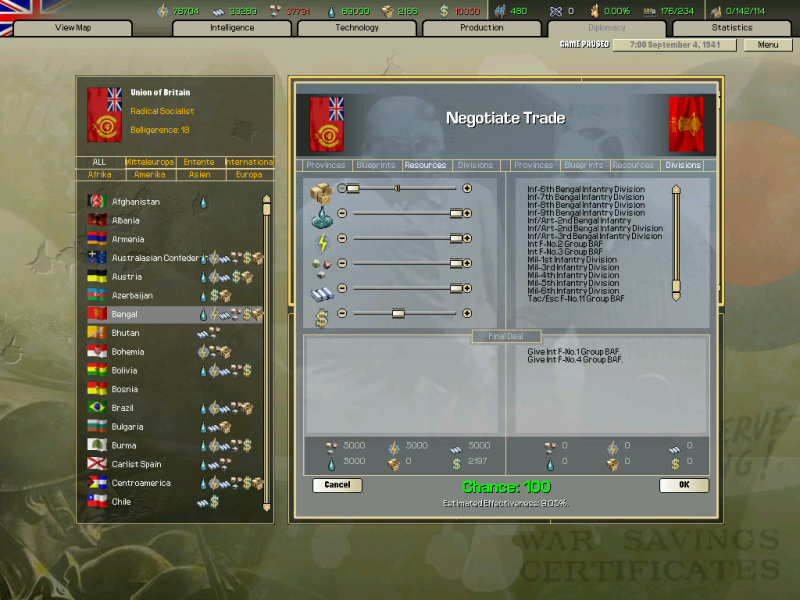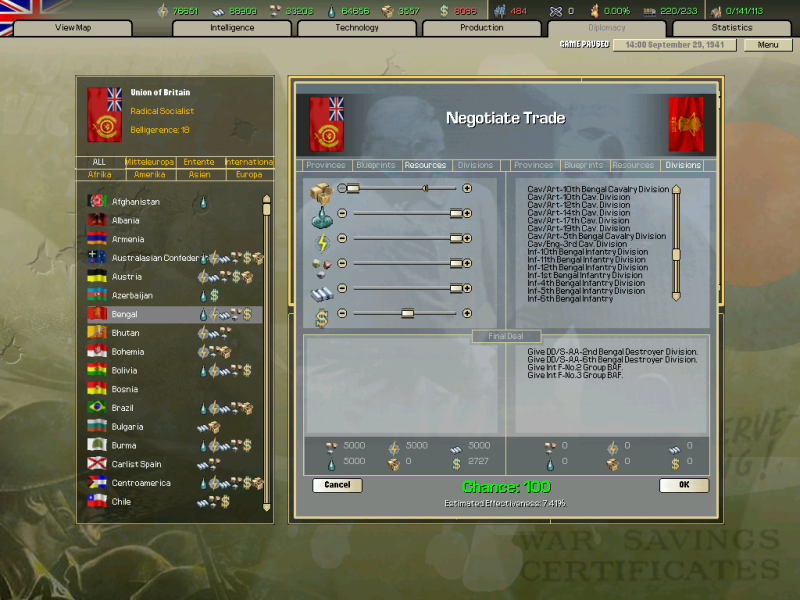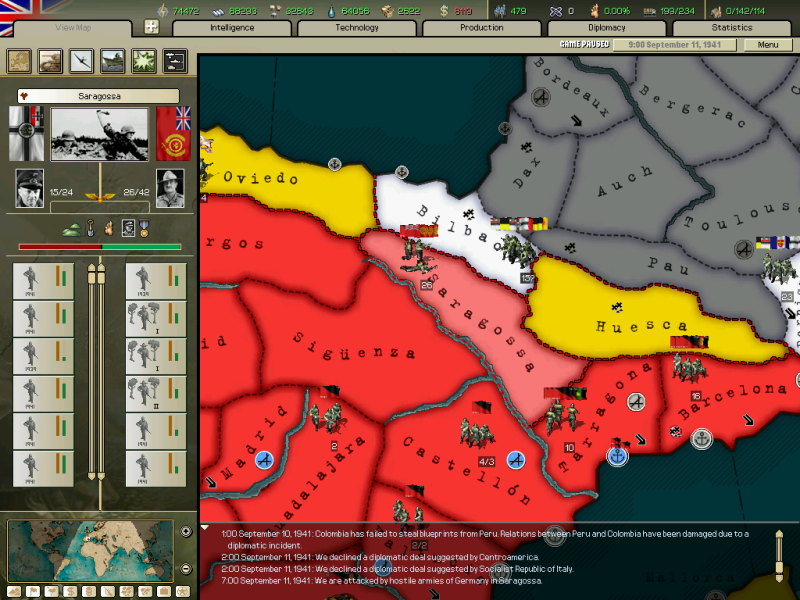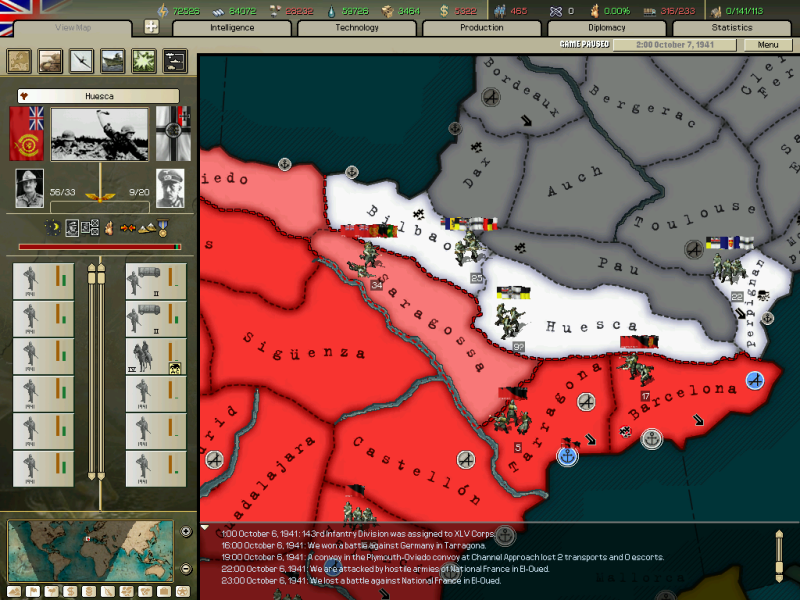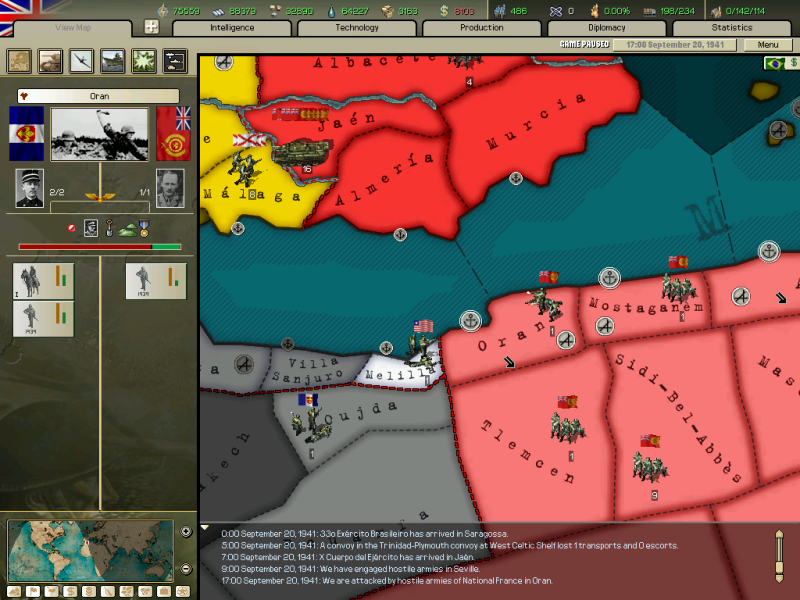The First World War (1914-1921) revolutionised warfare in many aspects. What was initially seen as a war that would be over quickly and would solve all European conflicts escalated into a bloody, long war that would claim the lives of millions after millions for little gain, thanks to trench warfare which increased defensive power greatly. Many new tools of war made their appearance - gas, tanks, planes, submarines. It is little wonder, therefore, that after the end of the war and after the Peace with Honour, Europe was completely mangled. Revolutions sprung up in several countries on the losers' side - France, Britain, Italy, Russia. Indeed, of these four, only Russia's revolution was defeated. And while Germany was working on its little project Mitteleuropa, the workers of the other three rebuilt their countries at a great pace and by 1936, the Internationale was more than a match for the Germans and their satellites.
At this point it was inevitable, conflict would come once again to Europe and the rest of the world. From border frictions to international incidents, the Internationale (at this point officially consisting only of the Commune of France and the Socialist Republic of Italy, as the Union of Britain took a more isolationist path at this point) and Mitteleuropa employed all the diplomatic weapons at their disposal to foreshadow the coming conflict. Russia was once again engulfed by revolution and subsequently fell apart as the Soviets, the Japanese puppet Siberia and the Don-Kuban Union's Cossacks all sought to grab as much of White Russia as possible. In the end, Soviet Russia and the Don Cossacks emerged victorious, and after another showdown the Cossack state collapsed as Soviet Russian troops overran them. Another revolution occurred in America, where both the America First party and the Combined Syndicates of America rose up in armed revolt, but General MacArthur's junta struck down both.
World War II began, however, not between the Internationale and Mitteleuropa, but between the Union of Britain and the revanchist Entente. Iceland, which had seceded peacefully from Denmark before, was the casus belli; both Royalist Canada and Syndicalist Britain recognised the value of Iceland as an ally, and both sought to bring Iceland into their spheres of influence. However, as the Union of Britain blockaded the small island country to drive the Canadians away, Canada - influenced by the King and the British aristocrats, who effectively had the dominion in their grip - declared war on the 7th of December, 1938.
The Canadians had underestimated the Union of Britain, however. For more than a decade it had been an isolationist, peaceful country - but this all changed in 1937 with the election of Comrade Oswald Mosley as Chairman, who had managed to convince the Congress to "persecute reactionaries wherever we find them", to quote him. Britain began a major buildup; in particular, the Republican Fleet was modernised and expanded with state-of-the-art battleships. The Union of Britain occupied Iceland in a lightning campaign and turned the young nation into a satellite state for the Syndicalist country, then used it as a springboard to launch a great offensive on Canada and the Caribbean.
On July 5, 1939, the Internationale gained its second foe, Mitteleuropa. As the French finally saw fit to reclaim Alsace-Lorraine from their German rivals, armed conflict finally broke out. The Union of Britain finally joined the Internationale bloc to fight all reactionaries. By 1940, however, the war has progressed, and things have been going ill for the Internationale.

On the positive side, the British campaign against the Entente was a complete success. British infantry captured the island of Newfoundland and used it as a staging point from which they first conquered the Caribbean Federation, island by island - then invaded Canada proper. After a surprise invasion that resulted in 10 divisions being trapped in Nova Scotia and the nearby regions, Canadian defences were weakened and even in the winter of 1939, the Syndicalist offensive broke through and chased the royalists all the way back to Winnipeg, where Edward VIII surrendered to the Union of Britain on the 12th of July, 1940. Now, in October 1940, the situation is much the same as back then - the Socialist Republic of Canada and the Québec republic have been liberated to build socialism in North America and British troops control all important Caribbean islands (the rest have been occupied by Delhi's expeditionaries or partisans, but Britain is currently unable to do anything about this).

In Europe, however, the situation is completely different. While the Union of Britain was waging its own war against the Entente, the Commune mobilised to invade Germany. And although the offensive was a success initially, as Flanders-Wallonia was annexed into the Commune, the French were unable to make a breakthrough. Indeed, over the course of one year, the tables have turned - Germany gradually pushed the French soldiers back. By the time the Union of Britain sent any help it was already too little, too late. Paris fell on the 1st of September; the Commune of France followed suit on the 28th. The Germans acted quickly; based on a secret agreement they handed over all of mainland France to the state of National France (ruled by the recently crowned Louis Napoleon IV) which was only too eager to forsake the (now almost nonexistent) Entente and join Germany and Mitteleuropa in exchange. Soviet Russia, too, lay in shambles as the socialist state was soundly defeated on the 4th of March after it joined the Internationale in an attempt to pressure the German bloc from the east. The Union of Britain, as a desparate measure, launched an all-out invasion of Northern Germany. And although the British soldiers have taken much land, they have failed to overrun Berlin, and the Germans have recovered from the shock of the invasion... it is doubtful whether this invasion can last.
(OOC note: The two Ottoman-owned provinces in Western France have been edited back to the French as the opposite makes no sense.)


As for the rest of the world, it didn't stay out of the war entirely. A Republican Chinese revolt in the AlgOstAsien GmbH, the vast German corporate colony in China, chased von Falkenhausen out of China while the military was hunting the warlord of Yunnan; Bengal has overthrown the Princely Federation and is poised to take on Delhi; Brazil and Bolivia have defeated La Plata and Chile in the Platinean war and scored a small victory for socialism by taking some land off La Plata. However, the Internationale's position is still precarious; the Union of Britain is now the bulwark of the Syndicalist bloc, and all of Europe is ready to take them on. While naval superiority ensures the safety of the island for now, Mosley will need to find a way to save the socialist cause and bring back syndicalism to Europe.
---
And this is where I step in. My job is to crush that huge goliath of a Mitteleuropa. Not an easy task, but hopefully not impossible either. I hope this is an interesting world I've created!
At this point it was inevitable, conflict would come once again to Europe and the rest of the world. From border frictions to international incidents, the Internationale (at this point officially consisting only of the Commune of France and the Socialist Republic of Italy, as the Union of Britain took a more isolationist path at this point) and Mitteleuropa employed all the diplomatic weapons at their disposal to foreshadow the coming conflict. Russia was once again engulfed by revolution and subsequently fell apart as the Soviets, the Japanese puppet Siberia and the Don-Kuban Union's Cossacks all sought to grab as much of White Russia as possible. In the end, Soviet Russia and the Don Cossacks emerged victorious, and after another showdown the Cossack state collapsed as Soviet Russian troops overran them. Another revolution occurred in America, where both the America First party and the Combined Syndicates of America rose up in armed revolt, but General MacArthur's junta struck down both.
World War II began, however, not between the Internationale and Mitteleuropa, but between the Union of Britain and the revanchist Entente. Iceland, which had seceded peacefully from Denmark before, was the casus belli; both Royalist Canada and Syndicalist Britain recognised the value of Iceland as an ally, and both sought to bring Iceland into their spheres of influence. However, as the Union of Britain blockaded the small island country to drive the Canadians away, Canada - influenced by the King and the British aristocrats, who effectively had the dominion in their grip - declared war on the 7th of December, 1938.
The Canadians had underestimated the Union of Britain, however. For more than a decade it had been an isolationist, peaceful country - but this all changed in 1937 with the election of Comrade Oswald Mosley as Chairman, who had managed to convince the Congress to "persecute reactionaries wherever we find them", to quote him. Britain began a major buildup; in particular, the Republican Fleet was modernised and expanded with state-of-the-art battleships. The Union of Britain occupied Iceland in a lightning campaign and turned the young nation into a satellite state for the Syndicalist country, then used it as a springboard to launch a great offensive on Canada and the Caribbean.
On July 5, 1939, the Internationale gained its second foe, Mitteleuropa. As the French finally saw fit to reclaim Alsace-Lorraine from their German rivals, armed conflict finally broke out. The Union of Britain finally joined the Internationale bloc to fight all reactionaries. By 1940, however, the war has progressed, and things have been going ill for the Internationale.

On the positive side, the British campaign against the Entente was a complete success. British infantry captured the island of Newfoundland and used it as a staging point from which they first conquered the Caribbean Federation, island by island - then invaded Canada proper. After a surprise invasion that resulted in 10 divisions being trapped in Nova Scotia and the nearby regions, Canadian defences were weakened and even in the winter of 1939, the Syndicalist offensive broke through and chased the royalists all the way back to Winnipeg, where Edward VIII surrendered to the Union of Britain on the 12th of July, 1940. Now, in October 1940, the situation is much the same as back then - the Socialist Republic of Canada and the Québec republic have been liberated to build socialism in North America and British troops control all important Caribbean islands (the rest have been occupied by Delhi's expeditionaries or partisans, but Britain is currently unable to do anything about this).

In Europe, however, the situation is completely different. While the Union of Britain was waging its own war against the Entente, the Commune mobilised to invade Germany. And although the offensive was a success initially, as Flanders-Wallonia was annexed into the Commune, the French were unable to make a breakthrough. Indeed, over the course of one year, the tables have turned - Germany gradually pushed the French soldiers back. By the time the Union of Britain sent any help it was already too little, too late. Paris fell on the 1st of September; the Commune of France followed suit on the 28th. The Germans acted quickly; based on a secret agreement they handed over all of mainland France to the state of National France (ruled by the recently crowned Louis Napoleon IV) which was only too eager to forsake the (now almost nonexistent) Entente and join Germany and Mitteleuropa in exchange. Soviet Russia, too, lay in shambles as the socialist state was soundly defeated on the 4th of March after it joined the Internationale in an attempt to pressure the German bloc from the east. The Union of Britain, as a desparate measure, launched an all-out invasion of Northern Germany. And although the British soldiers have taken much land, they have failed to overrun Berlin, and the Germans have recovered from the shock of the invasion... it is doubtful whether this invasion can last.
(OOC note: The two Ottoman-owned provinces in Western France have been edited back to the French as the opposite makes no sense.)


As for the rest of the world, it didn't stay out of the war entirely. A Republican Chinese revolt in the AlgOstAsien GmbH, the vast German corporate colony in China, chased von Falkenhausen out of China while the military was hunting the warlord of Yunnan; Bengal has overthrown the Princely Federation and is poised to take on Delhi; Brazil and Bolivia have defeated La Plata and Chile in the Platinean war and scored a small victory for socialism by taking some land off La Plata. However, the Internationale's position is still precarious; the Union of Britain is now the bulwark of the Syndicalist bloc, and all of Europe is ready to take them on. While naval superiority ensures the safety of the island for now, Mosley will need to find a way to save the socialist cause and bring back syndicalism to Europe.
---
And this is where I step in. My job is to crush that huge goliath of a Mitteleuropa. Not an easy task, but hopefully not impossible either. I hope this is an interesting world I've created!
Last edited:



